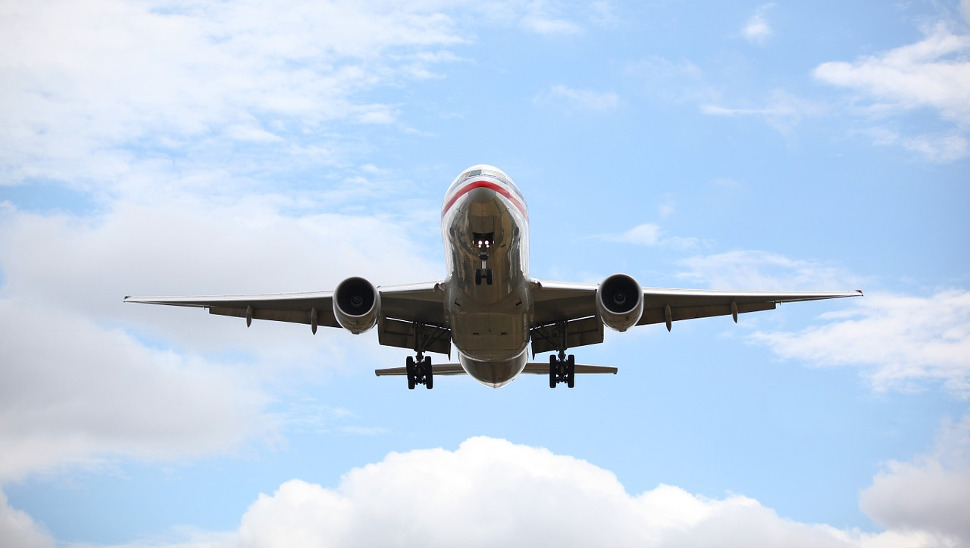FAA sets new 5G flight restrictions following network fears
Flights could potentially be diverted due to C-band 5G interference

The US Federal Aviation Administration (FAA) has issued a warning that interference from C-band 5G could result in flight diversions as the planned use of this new 5G wireless spectrum by mobile carriers poses an air safety risk.
As reported by Reuters, concerns have been raised by both the aviation industry and the FAA that sensitive aircraft electronics such as radio altimeters could be affected by potential interference from C-band 5G which falls between 4 GHz and 8Hz.
Just last month, AT&T and Verizon agreed that they would delay their respective rollouts of C-band 5G until January of next year in order to work with the FAA to address concerns surrounding potential interference with key cockpit safety devices.
Now though, the FAA has taken things a step further by issuing a set of airworthiness directives in which the government agency has ordered the revision of airplane and helicopter flight manuals to prohibit some operations that require the use of radio altimeter data when in the presences of C-band 5G signals.
5G vs. the airlines: a brief timeline
Jan. 28: FAA greenlights 5G at the airport The FAA's ongoing battle with Verizon and AT&T over ultra-fast 5G C-band deployment around airports is finally ending: On Friday, the FAA announced an agreement on new steps that allow yet more 5G towers to operate safely around key airports.
Jan. 13: FAA reveals exactly what 5G will do to airplanes The FAA is providing the airline industry with ‘Notice to Air’ missions that detail how 5G networks could potentially affect aircraft equipment, notably altimeters that rely on frequencies located between 4.2 and 4.4GHz.
Jan. 10: 50 airports get 5G "buffer zones" Airports in New York City, Los Angeles, Chicago, Las Vegas, Minneapolis, and more are covered by the new restrictions, with some airports excluded because they do not permit low-visibility landings or because 5G towers are not close enough to cause concern.
Are you a pro? Subscribe to our newsletter
Sign up to the TechRadar Pro newsletter to get all the top news, opinion, features and guidance your business needs to succeed!
Read more ▼
Jan. 04: So much for 5G at the airport Verizon and AT&T agreed late Monday to delay the 5G C-Band rollout, after earlier in the day announcing plans to move forward with their $70 billion dollar investment in the 5G C-band spectrum and their plans to launch the service on January 5.
Jan. 03, 2022: The DoT treads into the battle A letter by Secretary of Transportation Pete Buttigieg and FAA Administrator Steve Dickson to AT&T and Verizon acknowledges the investment in 5G-C made by both companies but cautions that "the economic stakes for the aviation industry and the disruptions the traveling public would face ... are significant."
Dec. 08: FAA sets new 5G flight restrictions The FAA has issued a warning that interference from C-band 5G could result in flight diversions as the planned use of this new 5G wireless spectrum by mobile carriers poses an air safety risk.
Nov. 5: Pilots warned about 5G interference -- and carries caved Verizon and AT&T agreed to temporarily postpone their rollout of C-band 5G in order to work with the Federal Aviation Administration (FAA) to address concerns surrounding potential interference with key cockpit safety devices.
C-band 5G interference
In one of its airworthiness directives, the FAA warned that since radio altimeter anomalies are often undetected by aircraft automation or pilots when close to the ground, they “could lead to loss of continued safe flight and landing”.
At this time, it still remains unclear as to what airports or airplanes may be impacted but the FAA said that it would issue notices if necessary to “state the specific areas where the data from a radio altimeter may be unreliable due to the presences of 5G C-band wireless broadband signals”.
Although C-band 5G interference is a potential problem for airports, airplanes and pilots, the FAA explained in a statement that it is working together with the FCC and wireless carriers on the issue, saying:
“The FAA believes the expansion of 5G and aviation will safely co-exist. Today, we took an important step toward that goal by issuing two airworthiness directives to provide a framework and to gather more information to avoid potential effects on aviation safety equipment. The FAA is working closely with the Federal Communications Commission and wireless companies, and has made progress toward safely implementing the 5G expansion. We are confident with ongoing collaboration we will reach this shared goal.”
Hopefully the FAA is able to resolve these issues soon so that AT&T and Verizon can continue their planned rollouts of C-band 5G early next year.
We've also featured the best 5G smartphones, best business smartphones and best mobile plans for business
Via Reuters
After working with the TechRadar Pro team for the last several years, Anthony is now the security and networking editor at Tom’s Guide where he covers everything from data breaches and ransomware gangs to the best way to cover your whole home or business with Wi-Fi. When not writing, you can find him tinkering with PCs and game consoles, managing cables and upgrading his smart home.
